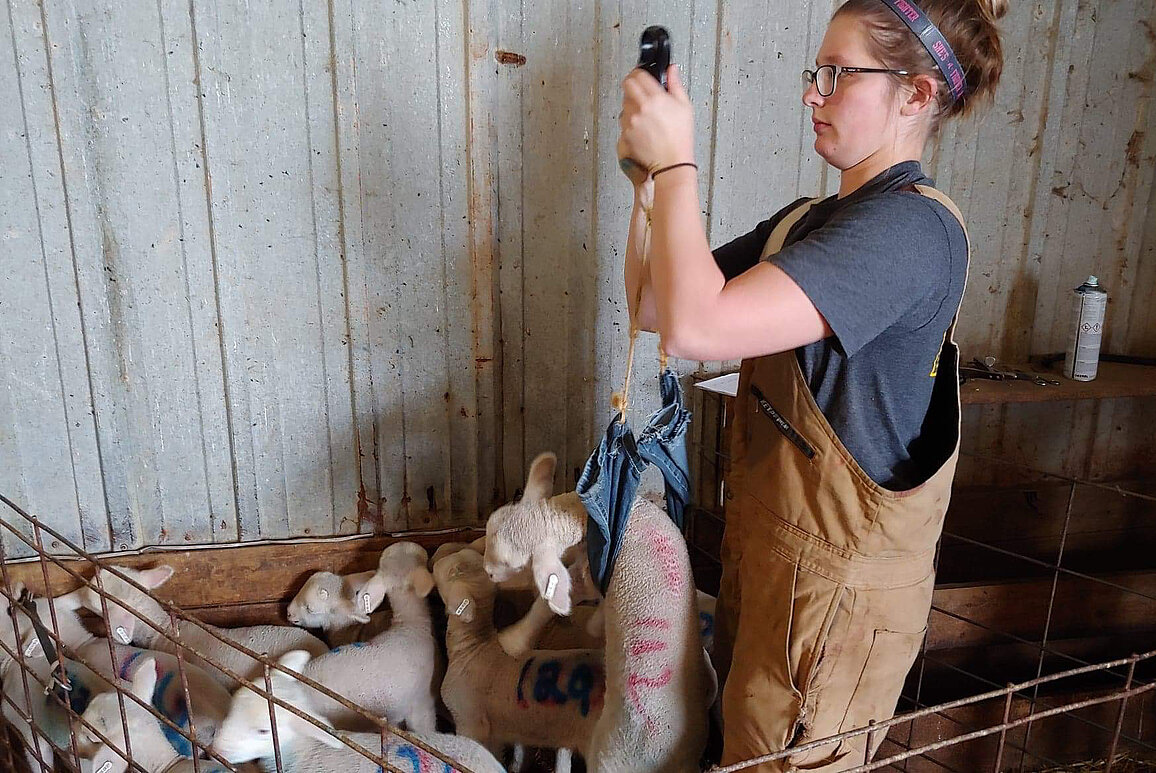NDSU Scientists Study Pain Responses of Sheep

Scientists at the Hettinger Research Extension Center (HREC) and North Dakota Agricultural Experiment Station on campus hypothesized that lamb performance may be affected by stress and pain associated with common castration and tail-docking procedures.
The researchers theorized that Flunixin Meglumine (FM) would decrease the lambs’ stress behavior and affect their cortisol levels and average daily gain. FM is a nonsteroidal anti-inflammatory drug (NSAID) used to treat pain and reduce fever or inflammation in animals.
Christopher Schauer, HREC director, says that to test the theory, 182 male Rambouillet lambs were divided into four treatments:
- A saline injection 15 to 30 minutes prior to rubber ring castration and tail docking
- An FM injection 15 to 30 minutes prior to rubber ring castration and tail docking
A saline injection 15 to 30 minutes prior to surgical castration and emasculator docking
- An FM injection 15 to 30 minutes prior to surgical castration and emasculator docking
As the lambs were restrained manually, researchers used a visual scale to assess stress based on the lambs’ lying or standing with various positions of the limbs and head. These physical evaluations were taken immediately after castration and tail docking by both methods plus at 30-minute periods for three hours afterward. In addition, the lambs were scored for swelling and wound appearance.
For the first 60 minutes, the rubber ring lambs had higher levels of pain, compared with surgical castration and docking, with no differences because of FM administration. However, at 180 minutes after castration and docking, behavioral stress was lower for rubber ring lambs that received FM and highest for surgical lambs that did not receive FM. This part of the trial indicates that FM may be beneficial for reducing behavioral-related stress in surgically castrated and docked lambs.
“Cortisol is the stress hormone that functions as nature’s built-in alarm system,” Schauer says. “A high level in the blood signifies stress. Blood was drawn at 30 minutes before the procedure and 30, 90 and 140 minutes after for cortisol analysis. In all four treatments, cortisol concentration peaked in the lambs 30 minutes after the procedure, indicating that’s when the lambs were most stressed. Over the time frame we measured cortisol, it became evident that FM administration decreased overall cortisol concentrations, especially in lambs that were surgically castrated and docked.”
The lambs were weighed every two weeks until weaning at six to eight weeks, and average daily gain was not affected by treatment.
“Lamb docking and castration are ethically acceptable practices; the benefits outweigh welfare risks,” Schauer says. “FM administered during castration and docking decreases stress when measured by both cortisol in blood and animal behaviors, depending on the castration and docking method. The use of pain relievers to decrease stress in baby lambs has not been a widely studied topic, but this trial points to some interesting findings that warrant additional research.”
For more information: Christopher Schauer, 701-567-4323, christopher.schauer@ndsu.edu


